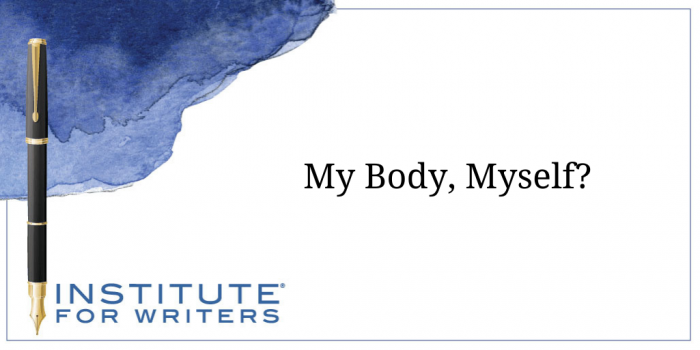1000 N. West Street #1200, Wilmington, DE 19801
© 2024 Direct Learning Systems, Inc. All rights reserved.

We teach our students how to write and get published!
View our Course Catalog >
The architect Suchi Reddy said, “We build our lives from our bodies. Then we build the next layer and the next layer—our home, our towns, our cities, our villages, our world.” Do you see your body that way, as the foundation of your life?
How is your life built; what’s the progression? Is it body, home, town, city, village, world like Reddy’s or might you experience a different trajectory? Could it begin outwardly, at a distance, say “Mountain, forest, pines, call of flicker, breath”? For me it’s “Mother, body, voice, dream, home, father, oh, New York City of my beginning, forever home.” For a first body poem, write about where your life began, how you experience it in memory and the next steps outward. You could start with the words, “I built my life from…” You might have a line of description for each item like: “I built my life from my mother who sang poetry to me night after weary night when I was nearly nothing but her.”
The 20th century American poet May Swenson opens her poem “Questions” with these words, “Body my house/ my horse my hound/” How about you? Do you see your body as a house, a horse, a hound or as something else? Some days mine is a nest and on others it’s a beehive. While at other times, I think of my body as a book, and I’m slowly turning the pages, in no hurry to get to the end of the story. At night in bed, if I can’t sleep, I imagine my body is a small rowboat on a calm New England pond like the one I rowed out into a late long night ago.
For a second body-inspired poem, imagine your body as something, or, like Swenson, as some things other than what it actually is, other than bone and blood, muscle and pumping heart. Write freely about it as that other thing or things. You could carry a single metaphor through the entire piece: If my body were a beehive, what’s my honey? Who are my bees? How does their song go? Will they ever teach me the words? Or choose multiple items: “My body is a beehive, nest, a book of turning pages.” Start the way Swenson did, “Body my ______,” and see where that takes you. Or begin with a question: “Body are you my flute, my parachute?”
Remember, when writing a poem follow your inclinations and trust your imagination. You’ll strengthen metaphoric thinking with this exercise, and metaphor is a basic component of poetry. Many of us poets see the world that way—one thing is a resonant symbol for something else.
Years ago, I wrote a book called Writing and the Spiritual Life: Finding Your Voice by Looking and oh, boy, did my body go through a conniption fit during the first couple of weeks as I began. It’s one thing to think about writing a book and another thing altogether to sit down and do it. I was afraid the book was maybe better just remaining a dream not a real thing. For those first weeks I sweat embarrassingly and was constantly nervous, on the edge of myself. Of course, it wasn’t actually my body making me anxious; it was my glorious, frustrating mind! But that mind of mine, oh it was wrecking havoc on my physical body.
In order to get writing, I thought it would be helpful to figure out where in my body my writing came from. I needed to locate the essence of my voice—my self—within, to ground me so that I could both remember and discover what I had to say. Once I located my voice and returned it to it, I rediscovered the ability to write my trustworthy truth.
At the beginning of Writing and the Spiritual Life, I write, “[T]he place where my soul resides feels located in and around my heart and a little below, in my solar plexus. When I am aware of that part of myself, attend to it, and act from it, I am at home. There’s a sense that everything I am comes together in that location; all inner roads lead there.”
Both as a writing prompt and as a writer’s orientation, write a poem or a fragment of prose about where in your physical body your writer-self dwells. You’ll develop a relationship with your inner voice by doing so.
Patrice Vecchione is the author of the poetry book, My Shouting, Shattered, Whispering Voice, available here. Patrice offers some rather surprising rules for writing, including 25 writing inspirations.
1000 N. West Street #1200, Wilmington, DE 19801
© 2024 Direct Learning Systems, Inc. All rights reserved.
1000 N. West Street #1200, Wilmington, DE 19801
© 2024 Direct Learning Systems, Inc. All rights reserved.
1000 N. West Street #1200, Wilmington, DE 19801
© 2024 Direct Learning Systems, Inc. All rights reserved.